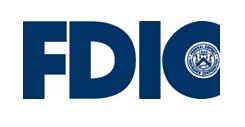|
Digital News Report – The number of banks in trouble is increasing and not decreasing, according to a report from the FDIC today. Although commercial banks and savings institutions made more money in the fourth quarter of 2009 than that same quarter in 2008, that profit is “well below historical norms”.
That is the good news. The bad news is that one-third of all institutions reported net losses for the quarter. “Recovery in the banking industry tends to lag behind the economy, as the industry works through its problem assets,” said FDIC Chairman Sheila C. Bair Tuesday.
Adding insult to injury, Bair reports that the total loan balances are still declining. This is the sixth consecutive quarter loan balances declined. This is important to Bair because she is charged with insuring these institutions.
The decline in the housing market along with stricter lending standards has created a perfect storm for the industry. Last year there were 140 banks closed by the FDIC. This year there may be more.
According to the report, the number of problem banks is increasing. The FDIC says that in September there were 552 banks on the “problem list”. In December that number grew to 702 insured institutions.
Although nearly all banks are insured by the FDIC (Federal Deposit Insurance Corporation), there are two basic types of institutions. There are Federal Reserve member banks like JPMorgan Chase and Bank of America, and there are non-member banks.
The Federal Reserve is a quasi-private bank owned by the large member banks. The member banks own shares in the Federal Reserve and are paid a six percent dividend each year from the profit of the Fed. The Federal Reserve dates back to 1913, the same year the 16th Amendment to the Constitution was ratified. That amendment allowed for the collection of income taxes.
The TARP funds, along with a massive infusion of money from the Federal Reserve kept the big member banks afloat. The FDIC closes down the troubled banks and usually sells their assets to member banks.
Last year 60-Minutes correspondent Scott Pelley told Bair that “Ben Bernanke, the chairman of the Federal Reserve, says that the system is unfair for smaller banks, and that’s just the way it is.”
Bair agreed saying “I think that’s true.”
By: Tina Brown

